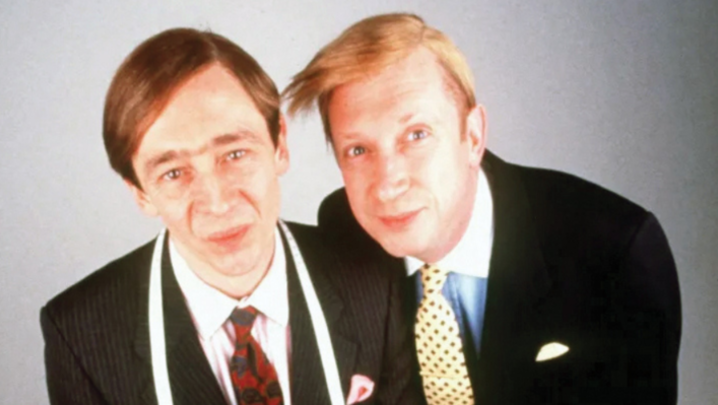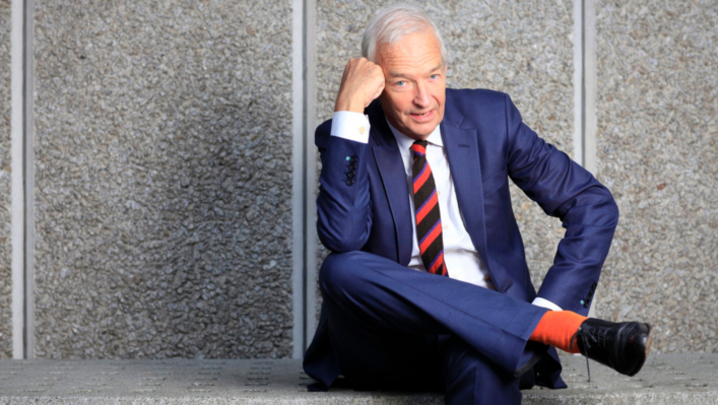Steve Clarke finds comic verve in a 1970s sitcom that now comes with a ‘health warning’
On paper, it shouldn’t work. The show is set in a seedy boarding house run by a bigoted, sexually frustrated, resentful man who looks like he rarely washes or changes clothes. His wife has left him, and he is a fantasist who makes up stories of heroic wartime deeds. He treats his boarders with contempt, apart from the one he’s hopelessly in love with – college administrator Ruth, played by Frances de la Tour, later known to millions from the Harry Potter films.
Welcome to Rigsby, the central character of Rising Damp, a contender for ITV’s greatest sitcom ever. It succeeds largely because of Leonard Rossiter’s brilliant portrayal of Rigsby. By all accounts, Rossiter was a perfectionist, but he makes it all look so easy, delivering his lines “with masterful pace and timing, speaking volumes with a simple twitch or roll of his eyes”. This is the perceptive verdict of Mark Lewisohn, author of the Radio Times Guide to TV Comedy.
Rossiter’s comic performance is up in the sitcom stratosphere with John Cleese as Basil Fawlty and Rowan Atkinson as Edmund Blackadder. To think that, at the time Rossiter was recording Rising Damp at Yorkshire Television’s Leeds studios, he was also starring in the BBC’s equally brilliant The Fall and Rise of Reginald Perrin.
Since making its debut in September 1974, Rising Damp has rarely been off air. Today, Rigsby would be called a racist. Since 2020, the show has been shown with a “health warning” that it contains racist language. Yet, paradoxically, Rising Damp was ahead of its time. One of its leading characters was a black man, bookish student Philip Smith, played by Don Warrington, who decades later would star in BBC One’s Death in Paradise.
And while Rigsby is a boor, throughout Philip is portrayed as the most intelligent and socially sophisticated of all the characters, even though he, too, is something of a fantasist. We never discover if he really is the son of a tribal chief.
This is what Warrington had to say about Rising Damp when interviewed by The Daily Telegraph in 2022: “A lot of black people still say to me that their parents would call them down from their bedrooms whenever it was on, because of the way it showed a black man on TV who was not being put down or abused.”
The fourth main character was naïve medical student Alan Moore (Richard Beckinsale), a long-haired, long-suffering tenant of Rigsby. At its best, Rigsby and Alan’s banter is exquisite and not without affection. There is something of the father-son relationship in their bickering. Tragically, two years after he left Rising Damp in 1977, Beckinsale died of a heart attack, aged 31. Rossiter died five years later in 1984 after a heart attack backstage at a London theatre. He was 57.
The show was created by Eric Chappell, an Electricity Board accountant turned playwright, and was based on his 1973 stage play The Banana Box. His best scripts for Rising Damp crackled with comic verve, much of the humour mined from the English obsession with class, status and thwarted sex. They are shot through with unresolved sexual tension: in the first episode, Ruth literally throws herself at an unresponsive Philip, and Rigsby’s unrequited love for Ruth endures through all four series.
Chappell defended Rigsby, saying he “was not a racist or a bigot, but he was prejudiced and suspicious of strangers”. He is certainly a post-war English archetype: a curmudgeon with elements of Tony Hancock and Dad’s Army’s Captain Mainwaring. Yes, he carries a chip on his shoulder, but we sympathise with him when his back is to the wall, as it frequently is.
That Rising Damp was made by Leeds-based ITV company Yorkshire Television says a lot about the creativity and risk-taking of the old regional ITV in which companies such as Yorkshire and Granada regularly outgunned their London-based peers.
Rising Damp is on ITVX.







